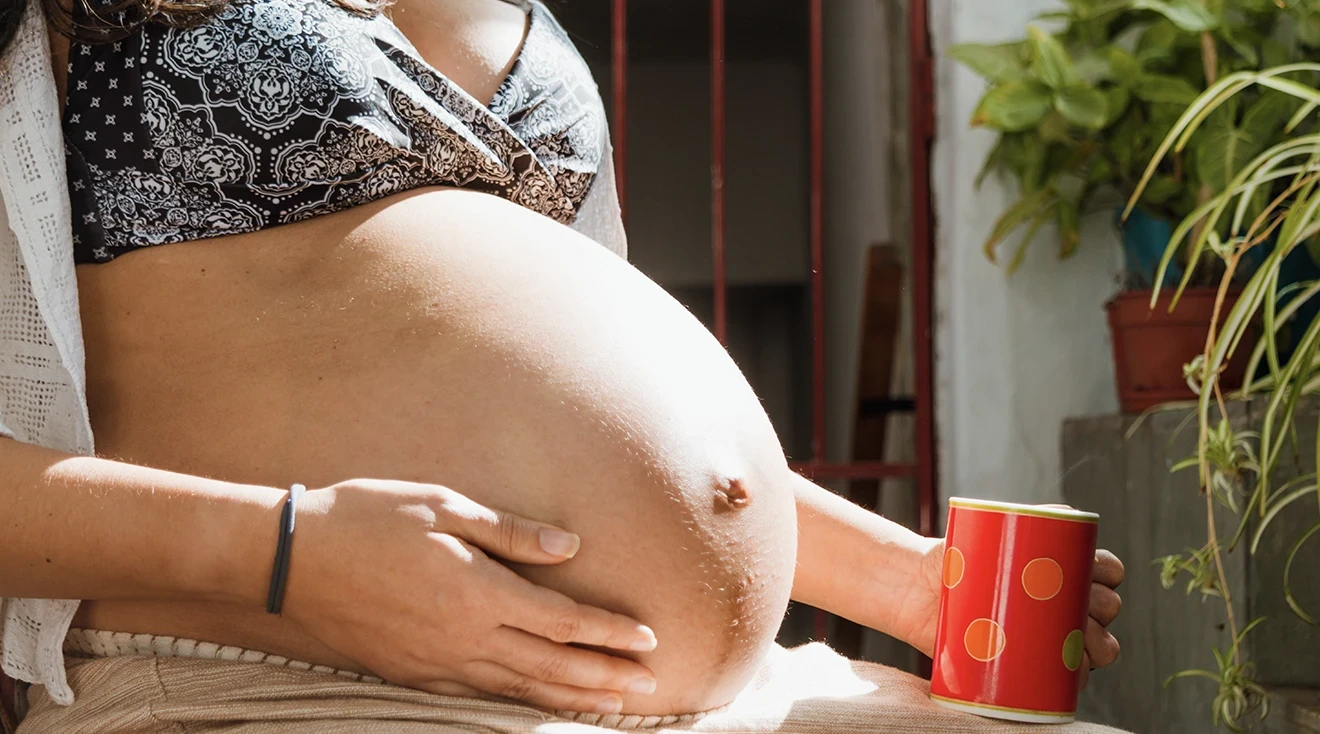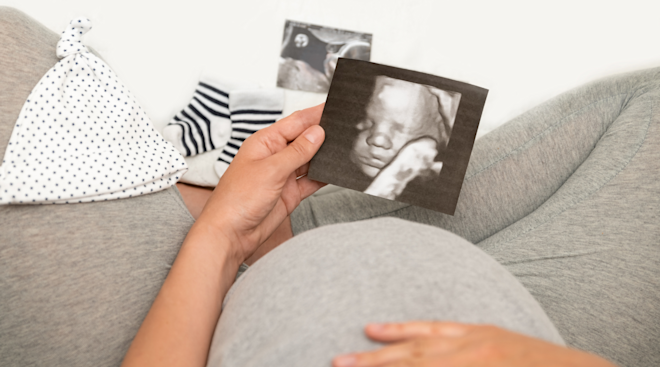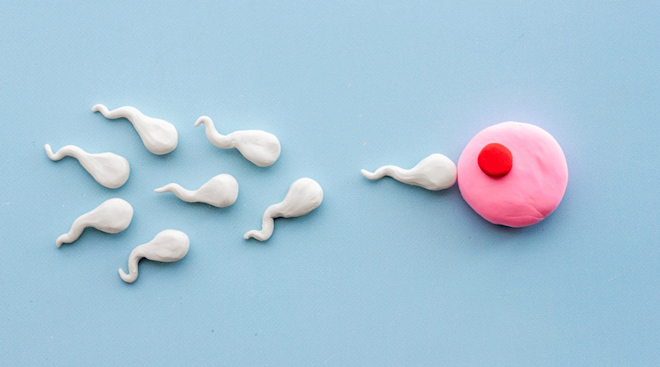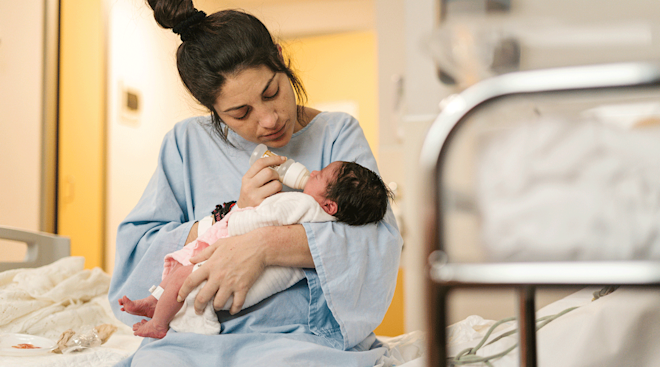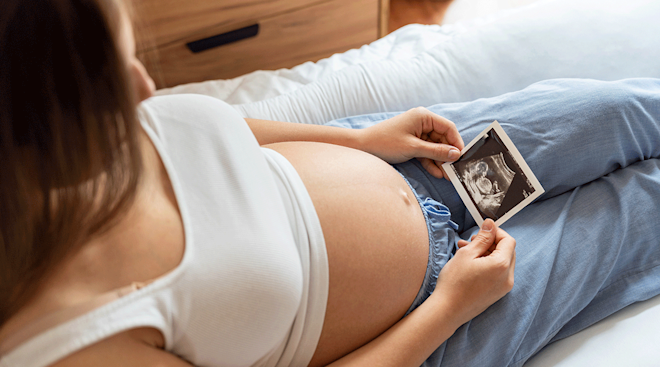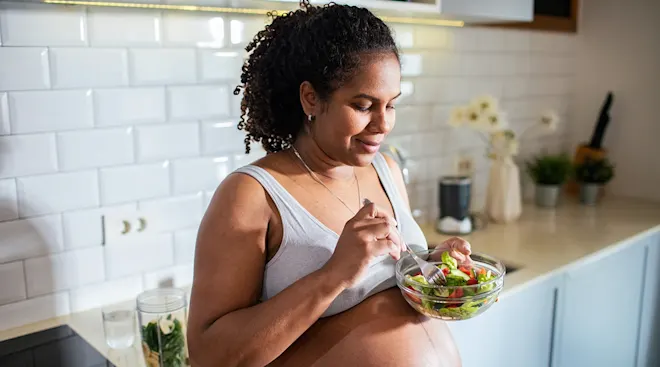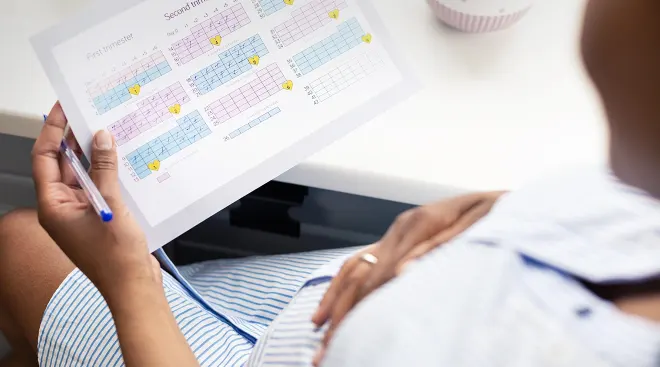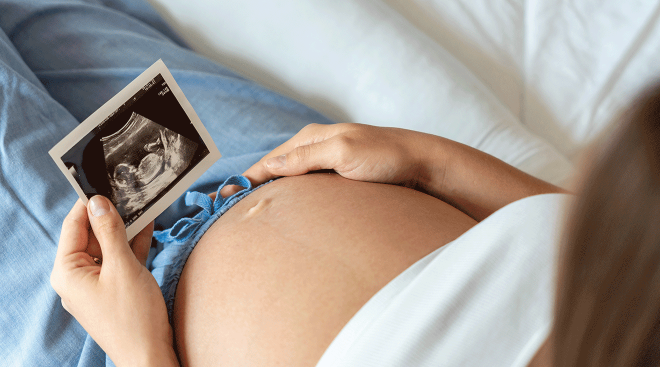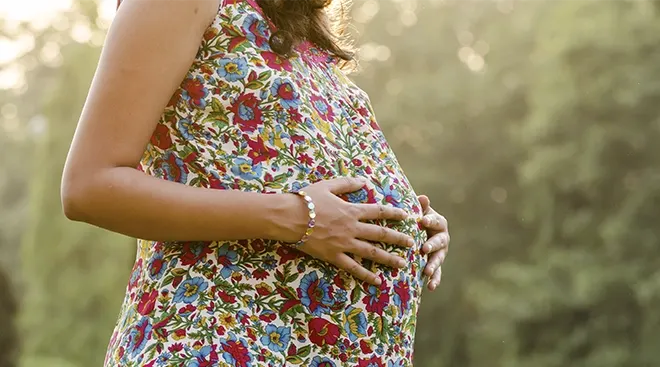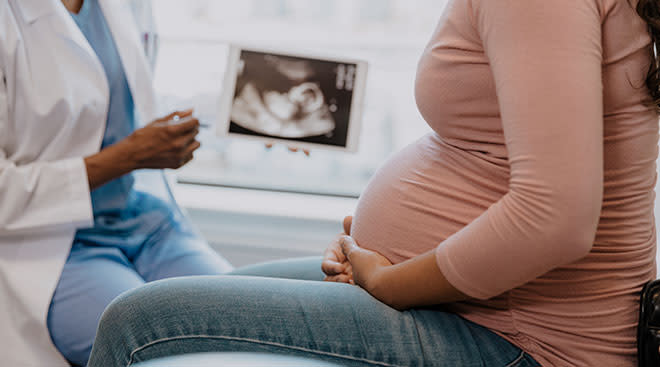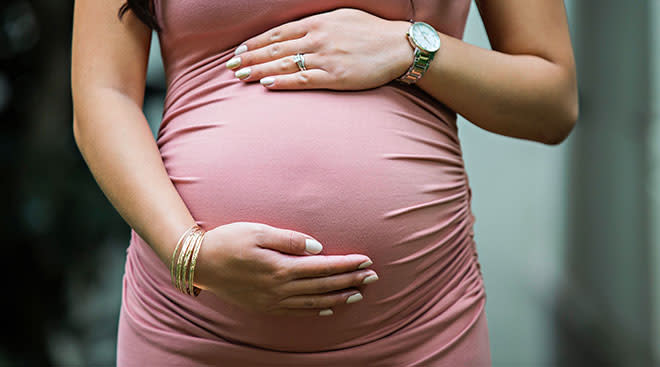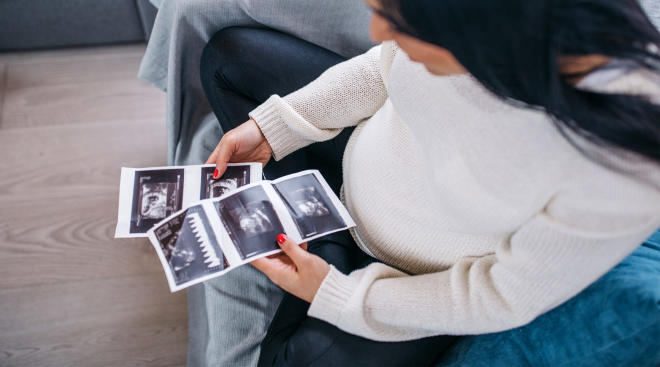Is It Safe to Smoke Marijuana While Pregnant?
Whether you’re nauseous, anxious about the idea of becoming a parent or just looking for a way to relax, you may have wondered if marijuana use during pregnancy is safe. With a growing number of states legalizing marijuana—not only for medical use but also recreational purposes—it might seem like smoking weed while pregnant is relatively harmless. But experts warn that using even small amounts of cannabis in any form is risky when you’re expecting.
An estimated 2 to 5 percent of pregnant people use marijuana, according to the American College of Obstetricians and Gynecologists (ACOG). But while widespread use might make it feel acceptable, there’s a lot that’s unknown and a slew of potential consequences to consider. Suffice it to say, marijana and pregnancy just don’t mix. Read on to find out what we know (and what we don’t yet understand) about smoking marijuana or using any form of cannabis during pregnancy.
Sarah Bernstein, MD, a maternal-fetal medicine specialist at Massachusetts General Hospital, says that, in her practice, she’s observed that marijuana use is on the rise, so it’s not uncommon to wonder, “can you smoke weed while pregnant?” While the research isn’t entirely definitive, the answer is: Smoking marijuana isn’t considered safe for moms-to-be under any circumstance; moreover, there’s no known “safe” level or form of cannabis in pregnancy. Every major health organization, including the ACOG, Food and Drug Administration (FDA) and Centers for Disease Control and Prevention (CDC) warn that cannabis use can potentially harm both pregnant people and their developing babies.
During pregnancy, baby’s brain is developing at a staggering speed—evolving from a single 3 mm neural tube shortly after conception to more than 100 billion neurons at birth, according to Discovering the Brain. Brain cells multiply and differentiate to take on specific roles in different parts of the brain. Neurons then form connections that enable baby to breathe, walk, talk and form memories, among countless other skills.
One of the critical brain systems developing during pregnancy is the endocannabinoid system, which is responsible for mood, decision-making and stress response. When you smoke weed during pregnancy, THC—the compound responsible for the “high” you experience—crosses the placenta and enters the fetal brain. There, it binds to cannabinoid receptors in the endocannabinoid system, which are critical for brain development. “The interaction of THC in specific receptors in the brain can happen early on in fetal development,” explains Melody L. Berg, PharmD, MPH, BCPS, the editorial director of the American Society of Health-System Pharmacists. “THC may prevent the full development of nerve cells from occurring.” A disruption of normal brain development may lead to neurological and behavioral symptoms later in life, as well as increase the risk of low birth weight and other complications, according to studies in animals and humans.
Some people argue that there aren’t a lot of high-quality studies on marijuana and pregnancy—and they’re not wrong. That’s because there are potential risks of exposing a fetus to marijuana, and researchers would never knowingly harm a developing baby. The studies we do have are observational. In other words, researchers can’t control everything that may play a role in their findings. “Other factors may affect the fetus outcomes, including other substance use, nutrition status, genetics and prenatal care received,” explains Berg.
Still, many studies do suggest that smoking weed during pregnancy can pose a number of short- and long-term risks for a pregnant person and their baby. “There are definitely enough concerns raised by the science to make us feel that [marijuana use during pregnancy] is really not a great idea,” says Bernstein.
Are edibles or other forms of marijuana safe during pregnancy?
It’s widely known that smoking or vaping marijuana can lead to breathing problems, and even cause permanent lung injury—but that isn’t the only potential issue for your health. Both your lungs and your gastrointestinal tract can absorb the THC in marijuana, whether you smoke marijuana or consume edibles, explains ACOG. The drug still passes from the placenta to baby, putting your pregnancy and baby at risk.
Other forms of cannabis aren’t safe either. The FDA notes that while cannabidiol (CBD)—which is derived from marijuana or the hemp plant—has very low levels of THC, it still isn’t recommended during pregnancy. The fact is, CBD use during pregnancy isn’t well studied, and its potential long-term effects aren’t known. What’s more, most CBD products aren’t tested for purity and may contain other harmful chemicals, notes the office of the Surgeon General.
Research points to a number of potential health risks of cannabis use during pregnancy. These include:
- Permanent lung damage: Marijuana blunts or bowls contain many of the same toxins, irritants and cancer-causing chemicals as cigarettes. Smoking marijuana can lead to scarring and damage of small blood vessels in the lungs, notes the CDC.
- Injury: You’ve likely already noticed that pregnancy can make you clumsier. In addition to impairing your judgment, cannabis can make you dizzy and more prone to falling. These factors increase the risk that you’ll have an accident and physically injure yourself or baby.
- Nausea and vomiting: Regular, heavy cannabis use during pregnancy can actually increase the risk of experiencing severe nausea and vomiting—a condition known as cannabinoid hyperemesis syndrome, according to the Cleveland Clinic.
- Mental distress: High doses of THC can lead to mental health consequences, including anxiety, agitation, paranoia, psychosis and physical dependence or addiction to cannabis, according to ACOG.
While more research is needed, there’s sufficient evidence to convince doctors that marijuana use during pregnancy can negatively impact a baby’s health and development in the following ways:
Brain development and functioning
According to ACOG, a number of studies suggest marijuana use during pregnancy may disrupt normal brain development and function starting in the first trimester. The group notes that this appears to lead to behavioral problems and possibly decreased school performance later in childhood.
Withdrawal syndrome
The effects on baby may be noticeable at birth: A 2020 clinical review of existing relevant studies concluded that prenatal marijuana use may result in a withdrawal syndrome in newborns, including an increase in tremors, startles and sensitivity to light.
Low birth weight and size
Numerous studies have linked marijuana use to significantly smaller birth lengths and head circumferences as well as lower birth weights—an effect that increases with the amount of cannabis that a mom uses, especially in the first and second trimesters, notes ACOG.
Stillbirth
ACOG cautions that the risk of stillbirth may be “modestly increased” by marijuana use during pregnancy. The group points to a 2014 study of 663 stillbirths that analyzed the moms’ blood for substances including marijuana. Although the researchers found a slightly increased risk of stillbirth in those who tested positive for cannabis, the results were hard to interpret because many of the moms who used cannabis also used tobacco.
The effects of marijuana use during pregnancy on brain development appear to have long-term impacts on children’s brain functioning, notes ACOG, leading to behavioral and other issues starting in toddlerhood and potentially extending into adolescence.
Behavioral issues
There’s convincing evidence that marijuana use during pregnancy is associated with decreased attention span and behavioral problems from early childhood to the preteen years, notes ACOG. An analysis noted that large, population-based studies link prenatal cannabis use to aggressive behavior and attention deficits in children as young as 18 months of age.
This effect appears to persist as children grow. "Observationally, preschool-aged children born to women who’ve self-reported marijuana use in pregnancy have been noted to have difficulties with verbal and visual reasoning, impulsiveness and hyperactivity, in addition to the attention issues seen at the toddler stage,” says Berg. “By the age of 10, these kids also start to have an increase in depressive and anxiety symptoms.”
One of the most frequently cited studies showing the long-term effects of cannabis use during pregnancy is a 2022 analysis of more than 10,000 11- and 12-year-old children. It showed that kids who were exposed to cannabis before birth were at a higher risk of aggressive behavior, social problems, conduct disorder, ADHD and rule-breaking behavior—which the research authors noted may increase the risk for psychiatric disorders and problematic substance use in later years.
Cognitive function
Children who are exposed to marijuana during pregnancy appear to score lower on tests of visual problem solving, visual-motor coordination and visual analysis, notes ACOG. A 2018 review of 12 studies associated prenatal marijuana use with these outcomes as well as lower overall performance on other cognitive exams, including for memory and verbal development.
Although a 2020 study of more than 500,000 children associated marijuana use during pregnancy to a slightly increased risk of intellectual disability and learning disorders, ACOG notes that the evidence so far isn’t strong enough to clearly show an impact on school performance.
People smoke weed for all sorts of reasons. But if you’re planning a pregnancy and use medical marijuana, talk to your doctor about suitable alternatives—ideally before you get pregnant. “In the first trimester, we want you to be as healthy as possible. The organs are forming… Everything’s happening at that point,” says Bernstein.
If you use it recreationally or for another purpose, try to pinpoint what need marijuana is filling in your life, and experiment with safer options.
Alternatives for nausea and vomiting
Although cannabis is known to have an anti-nausea effect in non-pregnant people, there’s no evidence that it helps with morning sickness in those who are expecting, notes Kjersti Aagaard, MD, a professor of obstetrics and gynecology at Baylor College of Medicine. In fact, long-term, frequent use (at least once per week) can lead to cannabinoid hyperemesis syndrome—or recurrent and severe episodes of nausea and vomiting.
If you’re struggling with nausea and vomiting during pregnancy, stick to a bland diet with complex carbohydrates and protein, suggests Berg. Eat five to six smaller meals throughout the day, and sip on cold, non-caffeinated carbonated beverages like ginger ale. If these strategies don’t help, she suggests talking to your doctor about taking vitamin B6 and Unisom, which has been well-studied and shown to be safe during pregnancy.
Alternatives for pain
Berg suggests starting with non-medicinal methods, like heat or ice or massage or brace support, depending on where the pain is. If that doesn’t suffice, ask your doctor if Tylenol or another medication may be safe for your needs.
Alternatives for anxiety and depression
Always talk to your doctor about anxiety or depression symptoms. Working with a therapist can help you come up with coping strategies. Prescription medications may also be an option. “Selective serotonin reuptake inhibitors (SSRIs) are very well-studied in pregnancy and are a much safer alternative,” says Bernstein.
Alternatives for sleep problems
It’s very common to struggle with insomnia during pregnancy. Keep screens out of the bedroom, have a calming nighttime routine, make sure your room is dark and set your thermostat to a comfortable temperature. As your bump grows, a pregnancy pillow can help relieve some discomfort. If none of these tricks work, Bernstein suggests talking to your doctor about taking Unisom or Benadryl.
Alternatives for relaxation and stress relief
Try out other outlets to help you unwind—whether that’s yoga, meditation, exercise or even a warm cup of tea. You may be surprised at how much a few short walks outside throughout the day can help you feel more relaxed.
If you’re trying to stop smoking week during pregnancy, you’re not alone. Talk to your doctor, whose role and goal is to support you in having the healthiest pregnancy possible. “Just as with tobacco use, support programs exist to help [people] stop marijuana use during pregnancy,” says Berg.
About the experts:
Kjersti Aagaard, MD, is a maternal-fetal medicine expert and a professor of obstetrics and gynecology at Baylor College of Medicine in Houston. She earned her medical degree from the University of Minnesota.
Melody L. Berg, PharmD, MPH, BCPS, is the editorial director of the American Society of Health-System Pharmacists.
Sarah Bernstein, MD, is a maternal-fetal medicine specialist at Massachusetts General Hospital and an assistant professor at Harvard Medical School. She earned her medical degree from Tel Aviv University.
Please note: The Bump and the materials and information it contains are not intended to, and do not constitute, medical or other health advice or diagnosis and should not be used as such. You should always consult with a qualified physician or health professional about your specific circumstances.
Plus, more from The Bump:
Kjersti Aagaard, MD, is a maternal-fetal medicine expert and a professor of obstetrics and gynecology at Baylor College of Medicine in Houston. She earned her medical degree from the University of Minnesota.
Melody L. Berg, PharmD, MPH, BCPS, is the editorial director of the American Society of Health-System Pharmacists.
Sarah Bernstein, MD, is a maternal-fetal medicine specialist at Massachusetts General Hospital and an assistant professor at Harvard Medical School. She earned her medical degree from Tel Aviv University. American College of Obstetricians and Gynecologists, Marijuana Use During Pregnancy and Lactation, October 2017
Food and Drug Administration, What You Should Know About Using Cannabis, Including CBD, When Pregnant or Breastfeeding, October 2019
Centers for Disease Control and Prevention, Pregnancy, October 2020
Discovering the Brain, The Development and Shaping of the Brain, 1992
US Department of Health and Human Services, U.S. Surgeon General’s Advisory: Marijuana Use and the Developing Brain,
US Food and Drug Administration, What You Should Know About Using Cannabis, Including CBD, When Pregnant or Breastfeeding, October 2019
Centers for Disease Control and Prevention, Lung Health, October 2020
Canadian Family Physician, Cannabis use during pregnancy and postpartum, February 2020
Obstetrics & Gynecology, Association Between Stillbirth and Illicit Drug Use and Smoking During Pregnancy, January 2014
American Medical Association, Association of Mental Health Burden With Prenatal Cannabis Exposure From Childhood to Early Adolescence: Longitudinal Findings From the Adolescent Brain Cognitive Development (ABCD) Study, September 2022
Paediatric and Prenatal Epidemiology, Effects of Prenatal Marijuana Exposure on Neuropsychological Outcomes in Children Aged 1–11 Years: A Systematic Review, November 2018
Nature Medicine, Maternal cannabis use in pregnancy and child neurodevelopmental outcomes, 2020
Learn how we ensure the accuracy of our content through our editorial and medical review process.
Navigate forward to interact with the calendar and select a date. Press the question mark key to get the keyboard shortcuts for changing dates.
































